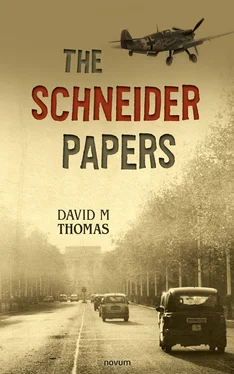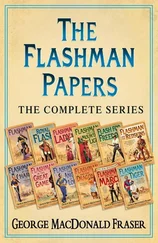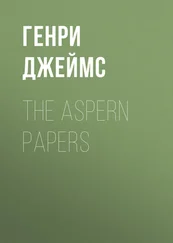So that was that. What also upset the apple cart was the killing of the French Foreign Minister in October 1934 by a Bulgarian communist assassin. It was a mistake. The killer was after King Alexander of Yugoslavia. He succeeded in his deadly task, but poor Monsieur Louis Barthou was also shot in the excitement of the ambush. The newspaper front pages all over western Europe were all about Moscow sponsored political assassinations; ‘and not for the first time in Europe,’ was the common theme. Both France and Great Britain slowly but surely turned away from the Soviet Union, and the British government decided it was best to use tête à tête diplomacy in its dealings with Germany. The era of appeasement had begun.
The Soviet Foreign Ministry fully understood that Great Britain would prefer a war between Germany and the Soviet Union. Two birds killed with one stone, and the liberal western democracies left in peace. ‘Best let the fascists and the Bolsheviks kill each other,’ was indeed the opinion in the clubs of Pall Mall and in the Houses of Parliament.
Ambassador Maisky’s task was to turn British government negative thoughts away from the Soviet Union and towards Germany. The question was: how to do it?
King George V died in January 1936. Maisky persuaded Litvinov to attend the funeral. They had important things to discuss. He arrived by boat train at Dover, and was met by Maisky and a couple of embassy protocol people. In a first-class carriage on the Dover to Victoria train puffing its way through the orchards of Kent, Maisky broached the subject on the placation, the pacification of Great Britain towards the Soviet Union.
‘We have to play to our strengths,’ replied Litvinov. ‘What do we have that we can ease the situation? Grease the wheels, so to speak,’ he smiled at his unintended metaphor, and continued slowly wiping away the condensation on the carriage window as the train pulled out of Tonbridge railway station. After a pause of a few seconds, ‘Difficult, but now impossible,’ said Litvinov quietly to himself. ‘What do we have that no other country has?’ He left it at that.
Maisky, who had known Litvinov for two decades, decided to let that cryptic question rest. This conversation would continue later. Without the presence of embassy staff. Intriguing question though, thought Maisky. He followed Litvinov’s posture; crossed his hands over his stomach, tilted back his head, and closed his eyes.
The funeral was held a few days later in Windsor. MM Litvinov, the People’s Commissar for Foreign Affairs of the Soviet Union, met the new King Edward VIII at the palace. Courtesy meetings with Stanley Baldwin, the Prime Minister, and some members of the cabinet inevitably followed. Lunch at Anthony Eden’s London house; an intimate dinner at Scott’s restaurant in Coventry Street with the Vanissarts and one Alastair Cartwright; a brief history walk down Whitehall to Westminster Abbey and Houses of Parliament, led by an excited, arm-pointing medieval history don. This bored Litvinov into a fatigued state as he was led to admire one pointed-out thing after another. The gusty wind and drizzling rain did not help. He told Joseph Vassarionovich later that it was the ice cold pin pricks of driving rain on his face that kept him awake. At the end of the day, as he sat down with a ‘thank God that’s over with’ sigh on a sofa to pull off his rain sodden shoes, he could not help himself saying to Maisky that although he liked the English, they had an over inflated sense of their importance in the new world order. It was the past that fortified them, he concluded. Whitehall and its environs could easily fit inside the walls of the Kremlin, and, as he pulled off a soggy shoe, he went on to say the Kremlin even had a longer, more interesting history. Litvinov seemed to have forgotten that it was London which had offered him shelter and safety once upon a time – or maybe that is why he said what he said.
It was not until the day before his journey back to Dover, that Litvinov told Maisky that he had a solution to his diplomatic difficulties. Litvinov, the secretive Commissar, did not impart his solution to Maisky, only the tidbit that it would be taken care of. ‘Rest easy Ivan Mikhailovich, and continue with your duties,’ were his parting words at the Dover ferry.
Chapter 3: 1936 – Joint Intelligence Committee
On Tuesday 7th July 1936, a few weeks before the spectacular opening of the Berlin Olympics, seven men sat around a large ornate table in a four-storey building just opposite the entrance to Downing Street to discuss the growing military challenge that Germany posed to the British Empire.
Six of the men were officers representing the intelligence staff of the Royal Navy, Army and the Royal Air Force. The seventh was a shadowy civilian whose background was an organisation that had no official existence, the head of the Industry Resources Section (IRS), as well as being a senior representative of the Foreign Office funded Secret Intelligence Service, the SIS. The building in which the meeting was taking place, No. 2 Richmond Terrance, was once the home of Sir Henry Morton Stanley, the explorer of Africa, the greeter of Dr. Livingstone, and sometime Member of Parliament for North Lambeth. Outside the front entrance, the plane trees were the last remnant of the Privy Garden of the Old Palace of Westminster. Now the large ornate rooms, modelled in the French style similar to the interior of a Loire chateau, housed the Committee of Imperial Defence (CID) and the Chiefs of Staff (COS) Committee, and it was on their direction that the key figures in British Intelligence were meeting formally for the first time.
As the clock chimed eleven o’clock in the meeting room on the first floor the Chairman, a Brigadier in the Buffs (Royal East Kent Regiment), opened proceedings. The Joint Intelligence Committee (JIC) had come into being.
The Armed Forces had their own intelligence units and they were quite proud and protective of them, the result of which was that the information was guarded even between themselves. Inter-service rivalry dominated. They had to be brought to heel and cooperate; easier said than done.
The SIS was under Foreign Office supervision, and was responsible for collecting information outside Great Britain and Northern Ireland. The SIS was not solely concerned with military matters, which was a cause of much jealousy and carping from the Armed Forces at various committees and ad hoc intelligence gatherings in Whitehall, and could and did report on political matters. Unfortunately, the SIS was underfunded and, according to knowledgeable Foreign Office insiders, it was encumbered by, to put it delicately, ‘square pegs in round holes.’ It had to be better used, and inept internal circuits replaced or circumvented; easily done if the will prevails.
The third strand of intelligence was the political element within the Foreign Office itself. A mixture of diplomatic reporting and information gathering through embassies and private networks, the Foreign Office had, since the nineteenth century, collected what is called ‘political intelligence’. This had to be incorporated into military intelligence consciousness; easier said than done.
It was because of this confusion and exasperation in a disparate number of organisations dealing with intelligence and a resurgent German threat that the Joint Intelligence Committee or the JIC was created.
The shadowy figure at the first Joint Intelligence Committee meeting was Alastair Cartwright, an artillery major in the Great War, seconded to the Foreign Office in 1919. A young clerk who worked in Cartwright’s department for a number of years had described him in hushed tones to a colleague in the staff canteen as the ‘intangible man’. He had the ability to pass through doors and walls and listen in on meetings, whispers in corridors, and conversations on stairways. She even suggested, and quite wildly, this ability extended to taxi cabs and buses. Cartwright, the information gathering phantom.
Читать дальше












